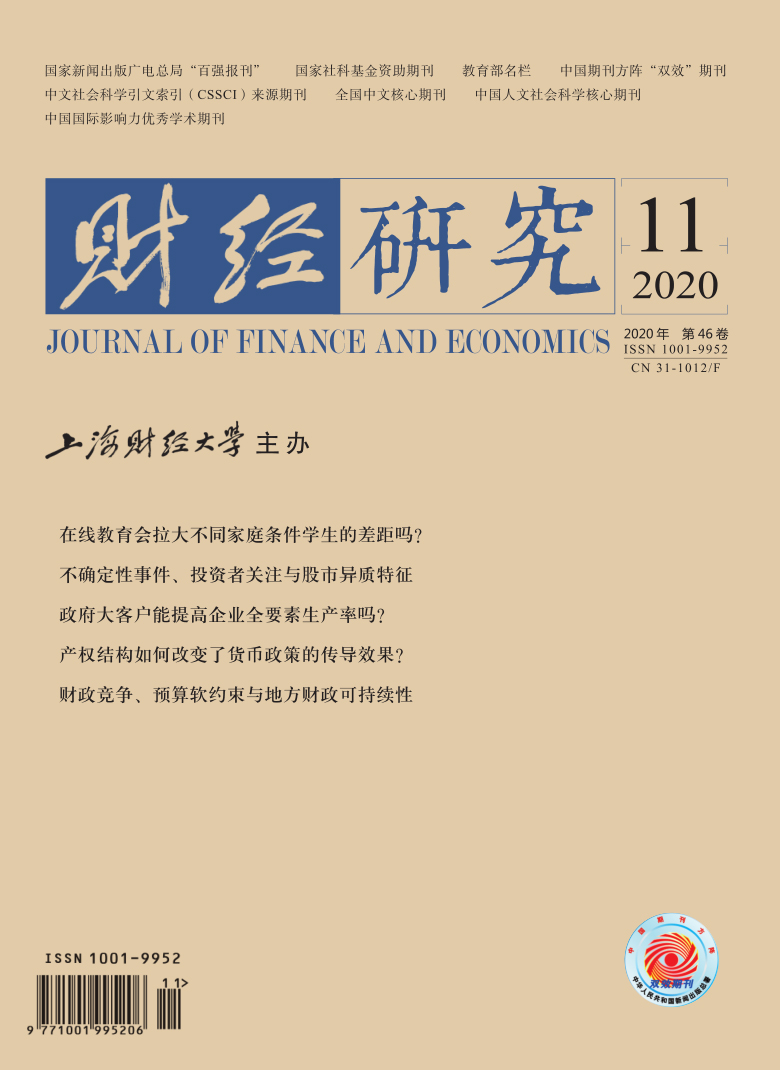住房公积金作为一项具备互助性、福利性和强制性的制度,设计初衷是为了促进我国住房公平,保障劳动者有房可居。但是这项旨在解决公平问题的政策,其有效性和公平性皆受到了质疑。文章利用2013年和2015年中国家庭金融调查(CHFS)数据,实证检验了公积金制度对居民住房拥有和购房计划的影响,并将最低工资作为工具变量引入实证分析。研究结果显示,家庭每月公积金缴存额对居民住房拥有和购房计划均具有显著的正向影响。更为重要的是,公积金制度存在一定程度的“两端补贴中间”的“纺锤”效应。对于中等收入家庭而言,公积金对其住房拥有和购房计划均具有显著的正向影响,对低收入家庭购房计划的影响不显著,而对高收入家庭的住房拥有和购房计划的影响也不显著。公积金制度作为解决老百姓“住有所居”的重要制度安排,初衷是发挥保障功效,让更多人享有住房的制度福利,但在现阶段更应考虑扩大对低收入群体的住房消费支持力度,保证公积金制度的公平性和有效性。
住房公积金制度保障功能的“纺锤”效应——基于CHFS数据的实证研究
摘要
参考文献
27 Boehm T P. Income,wealth accumulation,and first-time homeownership:An intertemporal analysis[J]. Journal of Housing Economics,1993,3(1): 16−30. DOI:10.1006/jhec.1993.1002
28 Carter S. Housing tenure choice and the dual income household[J]. Journal of Housing Economics,2011,20(3): 159−170. DOI:10.1016/j.jhe.2011.06.002
29 Chen J,Deng L. Financing affordable housing through compulsory saving:The two-decade experience of housing provident fund in China[J]. Housing Studies,2014,29(7): 937−958. DOI:10.1080/02673037.2014.923088
30 DeSalvo J S,Eeckhoudt L R. Household behavior under income uncertainty in a monocentric urban area[J]. Journal of Urban Economics,1982,11(1): 98−111. DOI:10.1016/0094-1190(82)90041-9
31 Draca M,Machin S,van Reenen J. Minimum wages and firm profitability[J]. American Economic Journal:Applied Economics,2011,3(1): 129−151. DOI:10.1257/app.3.1.129
32 Fu Y M. Uncertainty,liquidity,and housing choices[J]. Regional Science and Urban Economics,1995,25(2): 223−236. DOI:10.1016/0166-0462(94)02067-Q
33 Goodman A C. Following a panel of stayers:Length of stay,tenure choice,and housing demand[J]. Journal of Housing Economics,2003,12(2): 106−133. DOI:10.1016/S1051-1377(03)00017-2
34 Haurin D R,Parce T L,Haurin R J. Does homeownership affect child outcomes?[J]. Real Estate Economics,2002,30(4): 635−666. DOI:10.1111/1540-6229.t01-2-00053
36 Li S M. Mortgage loan as a means of home finance in urban China:A comparative study of Guangzhou and Shanghai[J]. Housing Studies,2010,25(6): 857−876. DOI:10.1080/02673037.2010.511154
37 Painter G,Yang L H,Yu Z. Homeownership determinants for Chinese Americans:Assimilation,ethnic concentration and nativity[J]. Real Estate Economics,2004,32(3): 509−539. DOI:10.1111/j.1080-8620.2004.00101.x
38 Royalty A B. Do minimum wage increases lower the probability that low-skilled workers will receive fringe benefits? [R]. JCPR Working Papers 222, 2001.
39 Simon K I,Kaestner R. Do minimum wages affect non-wage job attributes?Evidence on fringe benefits[J]. ILR Review,2004,58(1): 52−70. DOI:10.1177/001979390405800103
40 Smits A,Mulder C H. Family dynamics and first-time homeownership[J]. Housing Studies,2008,23(6): 917−933. DOI:10.1080/02673030802416601
41 Tang M Z,Coulson N E. The impact of China’s housing provident fund on homeownership,housing consumption and housing investment[J]. Regional Science and Urban Economics,2017,63: 25−37. DOI:10.1016/j.regsciurbeco.2016.11.002
42 Wan J M. Household savings and housing prices in China[J]. World Economy,2015,38(1): 172−192. DOI:10.1111/twec.12250
43 Wang W C, Gan C, Li Z H, et al. Accessibility of homeownership in Urban China: An empirical study of borrower characteristics and the housing provident fund[EB/OL]. https://papers.ssrn.com/sol3/papers.cfm?abstract_id=2564806, 2015-02-13.
44 Wessels W J. Minimum wages, fringe benefits, and working conditions[M]. Washington, DC: American Enterprise Institute for Public Policy Research, 1980.
45 Yeung S C W,Howes R. The role of the housing provident fund in financing affordable housing development in China[J]. Habitat International,2006,30(2): 343−356. DOI:10.1016/j.habitatint.2004.02.007
引用本文
李丁, 何春燕, 马双, 等. 住房公积金制度保障功能的“纺锤”效应——基于CHFS数据的实证研究[J]. 财经研究, 2020, 46(11): 108-122.
导出参考文献,格式为:






 6805
6805  11156
11156

